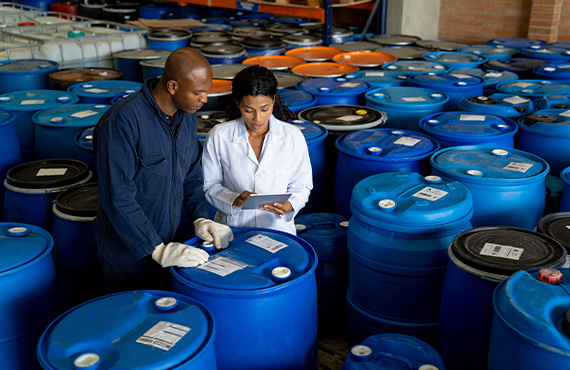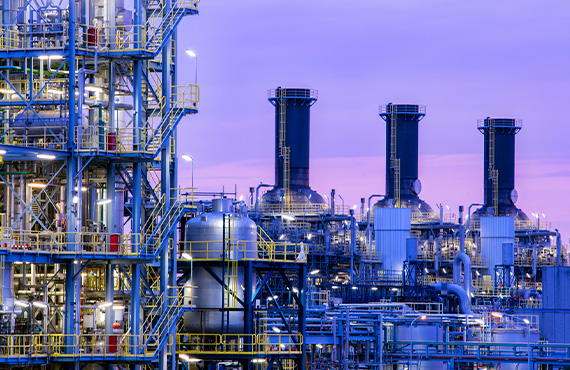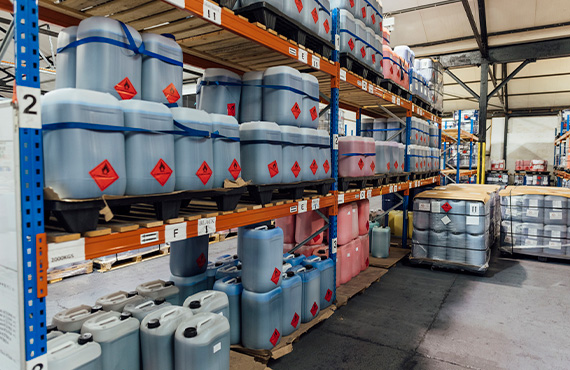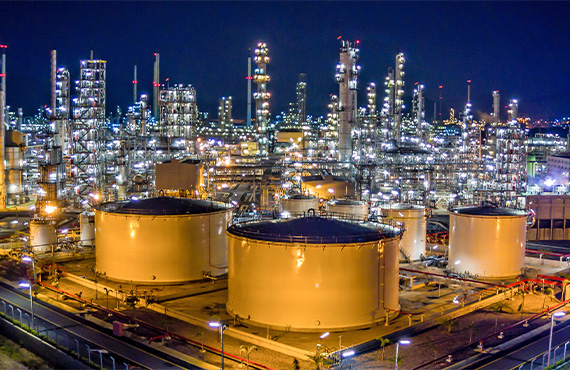
Cyber attacks and data breaches are unfortunately becoming more commonplace across all industries.
High-profile incidents, such as the 2021 Colonial Pipeline ransomware attack, have shown how much harm cybercriminals can cause. The attack disrupted fuel supplies across the Eastern US for days. It caused shortages and price hikes. The costs of cyber attacks are immense as well.
On average, companies now pay over $4 million to recover from a breach. The chemical industry faces high risks. This is because of the valuable intellectual property around their products and processes. A breach could undermine years of R&D investments. With more chemical operations connecting to data networks, the attack surface keeps growing. It’s crucial to protect your chemical plant operations and automation: let the experts at Proconex solve your cybersecurity challenges.
Unique Security Challenges in the Chemical Industry
The chemical industry faces unique challenges when it comes to cybersecurity. Chemical plants rely on complex industrial automation processes. These processes are interconnected and have evolved over decades. Developers and engineers designed legacy process control systems before cyber threats emerged. Many of these legacy systems are still in use, so it's hard to add modern security controls.
Legacy systems were engineered around reliability and safety rather than cybersecurity. They lack basic security features like authentication and encryption that are standard in today’s control systems. Upgrading or replacing legacy hardware and software is costly and production cannot be halted for extended periods. Many systems also have a long lifecycle, delaying opportunities to improve cyber defenses.
The complexity of chemical production processes presents obstacles too. Plants have a vast array of sensors, controllers, valves, instruments, and other devices. Networks connect enterprise IT systems with industrial control systems on the plant floor. Data flows between them. This provides many potential points of entry for attackers.
Securing chemical infrastructure is further complicated by a 24/7 operating environment. Plants often run with only brief shutdowns for maintenance. Any cybersecurity measures must avoid disrupting critical production systems. Downtime equates to lost revenue.
The chemical sector must navigate digital transformation and strengthen cybersecurity. With smart manufacturing, IIoT sensors, and data analytics transforming operations, attack surfaces expand. New risks emerge even as old ones remain unaddressed. Chemical companies now face the pressing need to develop cyber resilience.

Why Cybersecurity Matters for Chemical Manufacturing
We must protect critical operations and prized innovations. Cyber threats are rising for the chemical industry. They can disrupt operations. They create safety risks. They enable theft of ideas and harm reputations. Strong cybersecurity is vital. It protects your facilities, processes, data, and ideas. It also ensures you follow industry rules.
Some key reasons why cybersecurity matters:
- Protect operations and productivity. Cyber attacks can shut them down and hurt productivity. Security defenses safeguard the availability and reliability of industrial control systems.
- Prevent Intellectual Property Theft. Trade secrets, formulas, and sensitive data are top targets for cyber criminals. Strong data protections deter theft of your hard-earned intellectual property.
- Ensure compliance. Failing to meet cybersecurity standards can lead to fines. It can also lead to lawsuits and loss of certifications. Proactive measures show compliance with industry regulations.
- Keep things safe. Attacks on industrial systems can cause danger and harm. Securing these systems is paramount to safety.
- Secure Innovations: New smart systems, remote monitoring, and automation carry cyber risks. Security allows you to innovate.
- Protect Reputations: Breaches causing outages or leaks erode customer and public trust. Robust defenses preserve your reputation and brand integrity.
Proactive cybersecurity lets chemical facilities focus on driving innovation, efficiency, and growth. They can avoid recovering from attacks. Prioritizing security protects what matters most.
Assess Your Cybersecurity Risks
Thorough security audits are critical. They are the first step to understand your potential vulnerabilities. This allows you to find security gaps and weak points in your infrastructure. It includes issues such as unpatched systems, old software, and bad firewalls. They also lack encryption. The goal is to uncover risks that could lead to cyber attacks, data breaches, and threats to safety. Key areas evaluated in a risk assessment include:
- Access controls and account management
- Network architecture and segmentation
- Endpoint, server, and device security
- Application and software security
- Encryption and data security
- Incident response plans
- Physical security

Establish Robust Defenses
Strong cybersecurity is crucial. It safeguards chemical industry operations, innovations, and intellectual property. The below are some key areas to focus on:
Network Security
- Use DMZs, firewalls, and network segmentation. They control and track traffic.
- Utilize virtual private networks (VPNs), data encryption, and multifactor authentication.
- Establish secure remote access capabilities.
- Continuously watch network activity to detect anomalies.
System Security
- Establish strong password policies and access controls.
- Use security tools like antivirus software and intrusion detection systems.
- Install the latest security patches and updates.
- Harden system configurations to remove unnecessary services.
- Integrate robust backup and recovery systems.
Perimeter Security
- Establish physical access controls like fences, locks, and security personnel.
- Put in place surveillance systems and alarms.
- Screen and control any external access to facilities.
- Confirm identities and limit access to authorized individuals.
- Check perimeter areas for suspicious activity.
Guard Against Cyber Attacks
You need strong cybersecurity measures. This includes implementing security monitoring, access controls, and other defensive tactics.
- Use security monitoring. Track your network traffic, user activity, system logs, and data access patterns. Look for anomalous behavior. It could state an attack. Use SIEM solutions and IDS for industry.
- Control access. Limit access to your industrial control systems. Do this with role-based controls, multi-factor authentication, and network segmentation. Only allow trusted users to access critical systems and data.
- Harden systems. Do this by hardening your industrial devices, networks, and applications. Remove unneeded services, patch vulnerabilities, and configure secure settings. Also, harden workstations.
- Back up data - Maintain current backups of your data, configurations, and systems. This will enable you to restore operations if affected by malware or a cyber attack. Test restores regularly.
- Train personnel - Educate your personnel on cybersecurity best practices. Caution them against unsafe browsing, email attachments, USB devices, and social engineering.
- Maintain physical security. Control and check access to your facilities and control systems. Deter external attacks and insider risks.
You can detect attacks early and prevent them. To do this, use vigilant monitoring, access controls, and layered security tactics. These measures stop attackers from compromising your critical industrial systems. In addition, partner with cybersecurity experts to install robust defenses tailored to your environment.
Respond to Incidents
Having a plan in place to respond swiftly to cybersecurity incidents is crucial. The goal is to detect threats early and react to cut impacts. You'll want to have an incident response team ready. They will investigate, limit damage, remove threats, and fix systems. Key aspects of incident response include:
- The procedures or set rules for assessing the size of an incident. They also cover containing it, gathering evidence, and restoring systems. This may involve disconnecting affected systems.
- Having an incident response team ready to act 24/7. Key roles may include security analysts and forensics specialists. Also, legal counsel, communications staff, and crisis managers.
- Notifying internal stakeholders and authorities as required. Reporting obligations vary by industry and location.
- They will use the lessons to improve defenses. They will also use them to prevent similar incidents in the future. Update response plans accordingly.
- Testing response capabilities through drills and exercises to verify effectiveness.
With strong incident response preparations, you can limit damage. You can also avoid long downtimes, meet reporting mandates, and build resilience.

Maintain Compliance
You must follow cybersecurity rules in the chemical industry. Doing so is key. It avoids penalties and protects your operations. Key regulations include:
- The Department of Homeland Security (DHS) created the Chemical Facility Anti-Terrorism Standards (CFATS). They need chemical facilities to assess weaknesses and to add security measures. This involves cybersecurity protections.
- The National Institute of Standards and Technology (NIST) made the Cybersecurity Framework. It gives guidelines and best practices for managing cybersecurity risks. Many companies voluntarily follow this framework.
- The Chemical Safety Board (CSB) also gives guidance on cybersecurity. It is for chemical facilities. Their recommendations help prevent safety and environmental incidents.
More rules may apply. They are from states and the federal government. They're on cybersecurity, hazardous materials, and infrastructure. Tracking new and updated guidelines is essential. Robust cybersecurity measures enable facilities to follow laws and standards. This involves steps like doing risk assessments. It also involves making policies and procedures. And, setting up technical controls, training staff, and reporting on progress.
Partnering with experts like Proconex can help chemical companies maintain compliance. We have experience implementing cybersecurity solutions for industrial environments. This ensures your operations follow critical regulations. Rely on our expertise to avoid violations. Proconex will ensure compliance covers all needed areas.
Let Proconex Help You Safeguard Your Operations
Now is the time to act. Defend your chemical operations from cyber threats. Don't wait for an attack to harm your systems. With strong cybersecurity management from Proconex, you can embrace Industry 4.0 innovations. Start now to protect your vital infrastructure, data, innovations, and compliance.
